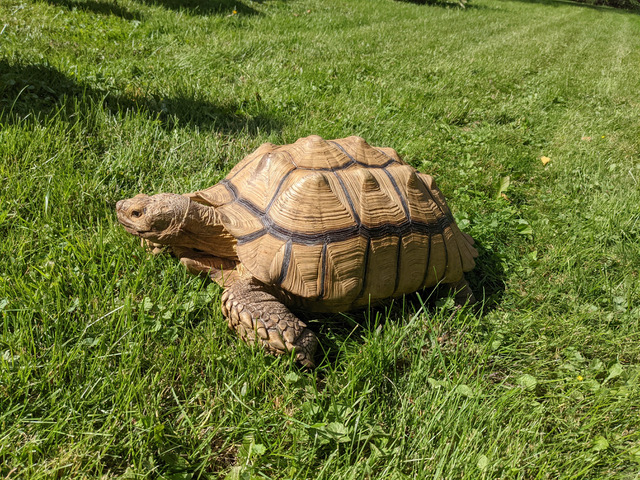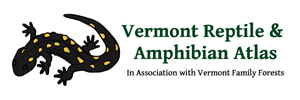Herp Update: Field Trip Winner, Cellamanders, Exotics – March 1, 2022
Field Trip Winner
One of the promotional gifts during our annual fundraiser is entering anyone who contributes $200 to $999 in a drawing for a free herp field trip in Vermont for them and up to ten friends. Yesterday, I had my wife Kris draw a name out of a bag with those 21 names in it. The winner this year was Chris T and we have begun planning a field trip for her and her friends and family. We also offer field trips for those who contribute over $1,000 and we had three people in that category. At least one of them is going to take us up on our offer.
Cellarmanders & other herp reports
New herp reports come in slowly over the winter months. We received another report of a Spotted Salamander overwintering in a cellar in Montpelier and a large Gray Treefrog population (seen and heard last summer) from 1,460 ft on the southern slopes of Mt. Anthony in Pownal.
Gray Treefrogs get harder to find as you go up in elevation and they seem to prefer hardwoods over the conifers found at higher elevations. The highest elevation we have for treefrogs is 2,700 ft. Most of the high-elevation reports of treefrogs are from southern Vermont in high elevation hardwood stands.
Exotics reported in 2021
Every year we receive a few reports of non-native reptiles and amphibians that were either released pets or were accidentally transported via boats, trucks, RVs, and cars.
During 2021, we received a report of an African Spurred Tortoise (Centrochelys sulcata, photo below) in Ferrisburgh that I picked up and transferred to a warden.
We received two different reports of Mediterranean House Geckos (Hemidactylus turcicus) in 2021. The reports came from Middlebury and Guilford. A Brown Anole (Anolis sagrei) was reported from Burlington. The anole and most other southern species will not survive a Vermont winter outdoors. That said, the Middlebury gecko report may well represent a breeding population inside a heated warehouse.
A Pond Slider (Trachemys scripta) was reported from Mallett’s Bay in Colchester. This is a common pet turtle species that has become invasive in southern New England. As our climate continues to warm, they could become invasive in Vermont.
A box turtle from West Windsor turned out to be a southern sub-species (Three-toed Box Turtle Terrapene carolina triunguis). This rules out the possibility that it was native.
Pet turtles should be kept as pets and not released to the wild.

Jim
Anyone who believes that exponential growth can go on forever in a finite world is either a madman or an economist.
(Kenneth Boulding, 1973)

